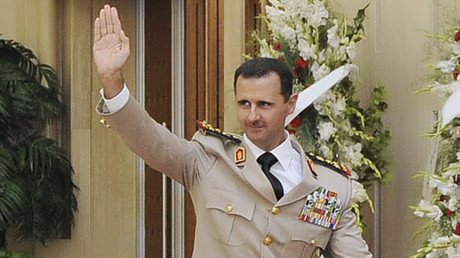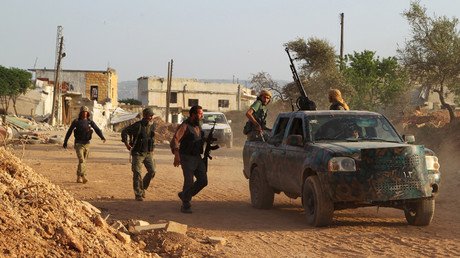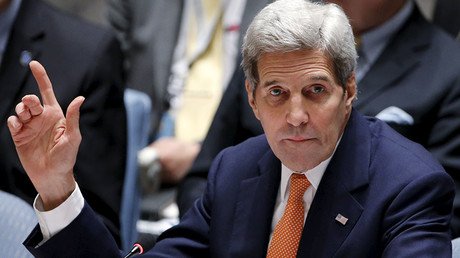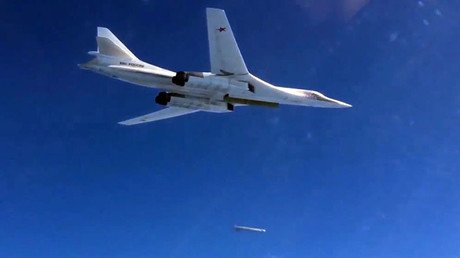'Game of cards': Seymour Hersh on conflicting interests in Syria
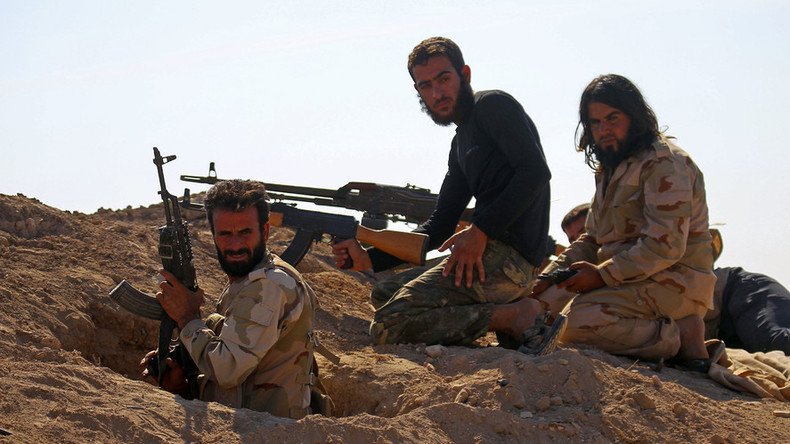
Journalist Seymour Hersh's new report on contradictions between President Obama and the US military regarding rebels in Syria was a bombshell. Hersh spoke with RT about the US military's view of Syria's Bashar Assad and Obama's relationship with Turkey.
Writing for the London Review of Books, Hersh reported that, in a classified document from Summer 2013, the highest echelons of the US military establishment outlined their opposition to the Obama administration’s strategy of arming so-called "moderate" rebels to oust Syrian President Bashar Assad. From 2013 to September 2015, in an effort to truly counter extremists in Syria, US military leaders fed US intelligence to Russia, Germany, and Israel, which then sent it to Assad, he reported.
The removal of Assad from power would be a gift to fundamentalist extremists, the military report said, as US defense officials compared a potential Assad ouster to ill-advised US eliminations of secular leaders Moammar Gaddaffi in Libya and Saddam Hussein in Iraq. Turkey – which the Obama administration has held close as an ally – is "a major impediment to Obama’s Syria policy," Hersh wrote of the 2013 military report. Turkey "co-opted" the US program "to arm and support the moderate rebels fighting Assad," a former senior adviser to the Joint Chiefs of Staff told Hersh. The moderate-arming program "had morphed into an across-the-board technical, arms and logistical program for all of the opposition, including Jabhat al-Nusra and Islamic State," Hersh's source said. The Free Syrian Army – the administration's preferred moderate rebel ally on the ground Syria – was not a "viable 'moderate' opposition to Assad, and the US was arming extremists," Hersh wrote.
"I have no way of explaining why the White House wasn't interested in that intelligence, but that was the perception that the Joint Chiefs of Staff had, that the president wasn't responding to very important intelligence and continuing to carry on with a policy that they saw as disastrous in the long-run," Hersh told RT.
Hersh added in the interview that the Obama administration seems "to be backing away from their hard line about Assad staying in power," even as they say Assad cannot stay in power during any negotiations to settle the ongoing Syrian crisis.
"So it is really just like a game of cards," he told RT.
Obama and the US military's 'moderate' rebels
Hersh told RT that Robert Ford, the US ambassador to Syria in Damascus, went to demonstrations against Assad in early 2011, amid the Arab Spring, in support of the opposition. Wikileaks reported that the US State Department worked to encourage the opposition. In reality, Hersh said, the stated strategy of the US, in which it arms alleged moderates to fight both Assad forces and extremists like Islamic State (formerly known as ISIS or ISIL), has long been a fiction.
Pentagon refuses to share intel on #ISIS until Moscow’s stance on #Assad changes https://t.co/08Arx8FxTzpic.twitter.com/Z0a96PS9Og
— RT (@RT_com) December 26, 2015"At least on some level, (US officials) understand that the groups they insist are so moderate have a lot of ties (to jihadist groups)," Hersh said. "You can't exist without being in league with Al-Nusra or the Islamic State."
The Free Syrian Army (FSA), which receives arms from the US, is not considered a serious foes by Islamic State and other militant groups, as the FSA has had to make "an accommodation" with Al-Nusra and Islamic State "in order to survive," Hersh wrote. In his story, he quoted a German journalist who spent ten days with Islamic State militants; those fighters said the FSA are "the best arms sellers we have."
Furthermore, the Obama administrations' close ties with Turkish President Recep Tayyip Erdoğan "make no sense," and come at the expense of effectively fighting Islamic militants in Syria, Hersh told RT, citing Russian and American sources.
"Without getting Turkey to stop opening its borders and stop supplying arms to the 'bad guys' it is going to be an intractable war, a much harder war," Hersh said is the view of military sources. "If we can get him to stop it would be much easier" to clear the area around Aleppo, the site of fierce fighting in Syria's northwest.
China's interests in Syria
An ally of Assad, China has "allegedly committed more than $30 billion to postwar reconstruction in Syria," Hersh wrote, and sees Islamic State as a threat, especially given the jihadist group's support for militant Uighurs, who are Muslims from western China. Uighurs are making it to Turkey via Kazakhstan, Hersh told RT, and then "are funneled into Syria to fight."
"What the Chinese are finding particularly offensive … is the fact that Islamic State, which has pretty good expertise in small-unit fighting, and, certainly, they've been training some of the Uighurs in how to make themselves more presentable and work them back into China where they then can do terrorism activities. So China sees this as a huge threat. China is very pro-Bashar, and has made a huge commitment of money for rebuilding," Hersh told RT.
ISIS posts propaganda song in Mandarin to recruit Chinese Muslims https://t.co/mXDHKGeX2ppic.twitter.com/At31DRgyVN
— RT (@RT_com) December 9, 2015"I think many Americans think believe that the United States, Russia, and China eventually will be the main sponsors, if we could ever get our policy straight, (to) work together with Arab boots on the ground, and that would take care of the problem."
